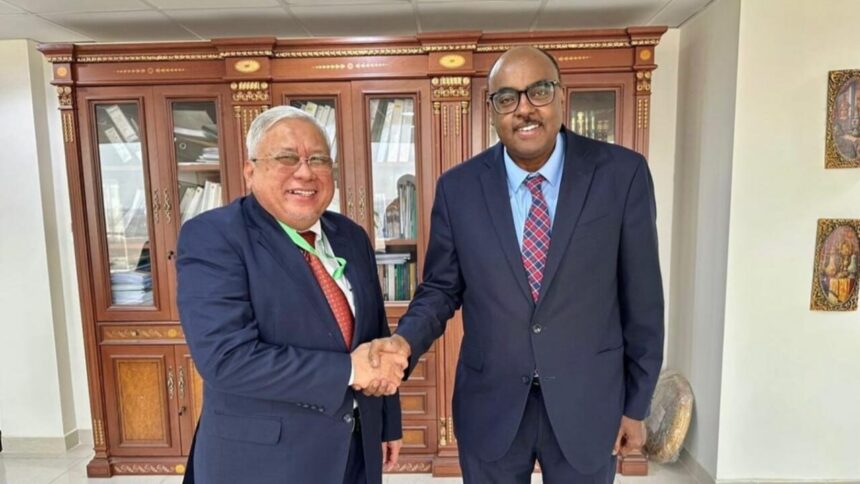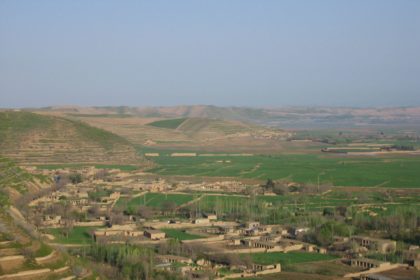RASC News Agency: As the Taliban regime faces unprecedented legal and diplomatic isolation, Tarek Ali Bakhit, the Organisation of Islamic Cooperation’s (OIC) Special Envoy for Afghanistan, met with Dato’ Ahmad Azam Abdul Rahman, Malaysia’s Special Envoy for Afghanistan’s Affairs, to deliberate on the escalating humanitarian and political crisis engulfing Afghanistan. According to an official communiqué from the OIC, the meeting centered on a comprehensive review of the current situation in Afghanistan and reaffirmed the organisation’s steadfast commitment to supporting Afghanistani citizens amid mounting adversities. The envoys also exchanged analyses regarding the outcomes of recent working group sessions associated with the Doha Process facilitated under United Nations auspices in Qatar aimed at fostering political reconciliation and stability in Afghanistan.
This high-level diplomatic engagement coincides with a landmark development in international justice: the International Criminal Court (ICC) recently issued arrest warrants for Taliban supreme leader Mullah Hibatullah Akhundzada and the group’s Chief Justice Abdul Hakim Haqqani on charges of crimes against humanity, including systematic gender-based persecution. The ICC’s statement underscores that compelling evidence implicates these senior Taliban figures in orchestrating a brutal and systematic campaign of repression since the group’s return to power in August 2021. The alleged atrocities encompass arbitrary detention, torture, widespread denial of fundamental rights, and enforced disappearances targeting women, girls, and other vulnerable populations across Afghanistani society.
The Taliban regime swiftly dismissed the ICC’s jurisdiction and denounced the warrants as “baseless, politically motivated, and ineffective.” Yet, this historic action by the Hague-based tribunal signals an intensifying international resolve to hold the Taliban’s leadership accountable for grave human rights violations particularly their entrenched policies that have effectively institutionalized gender apartheid and curtailed fundamental freedoms. Despite the Taliban’s recalcitrance, the OIC one of the few Islamic multilateral bodies maintaining engagement with the regime has persistently called for adherence to universal human rights standards, emphasizing especially the right to education for Afghanistani women and girls. This stance starkly contrasts with the Taliban’s ongoing efforts to suppress female education and marginalize women from public life, exposing the regime’s deepening disconnect from both Islamic principles of justice and the broader international community.
The recent dialogue between the OIC and Malaysia reflects a subtle but significant shift among moderate Muslim-majority states, highlighting an emerging consensus that Taliban claims to religious legitimacy do not exempt its leaders from international legal norms and moral accountability. This development challenges the regime’s narrative and undermines its efforts to legitimize its brutal governance under the guise of faith. As the ICC’s judicial proceedings gain traction and regional actors recalibrate their diplomatic approaches, the Taliban faces escalating pressure not only to reform but also to confront the consequences of its oppressive policies. The regime’s persistent denial of justice, coupled with its refusal to reverse egregious restrictions most notably the ban on female education has intensified its global isolation and cast serious doubt on its prospects for sustainable governance.
In this critical juncture, the world witnesses a mounting convergence of voices from international courts, Islamic organizations, and civil society alike united in condemning the Taliban’s authoritarian abuses and demanding accountability. The message is unequivocal: religion cannot be wielded as a shield to perpetrate systematic oppression and evade justice. The Taliban’s steadfast intransigence not only jeopardizes the future of millions of Afghanistani citizens but also threatens regional stability and undermines the credibility of Islamic governance models worldwide. The international community’s resolve to uphold human rights and legal norms will be pivotal in determining whether Afghanistan can emerge from this dark chapter or remains shackled by the forces of repression cloaked in ideological dogma.






